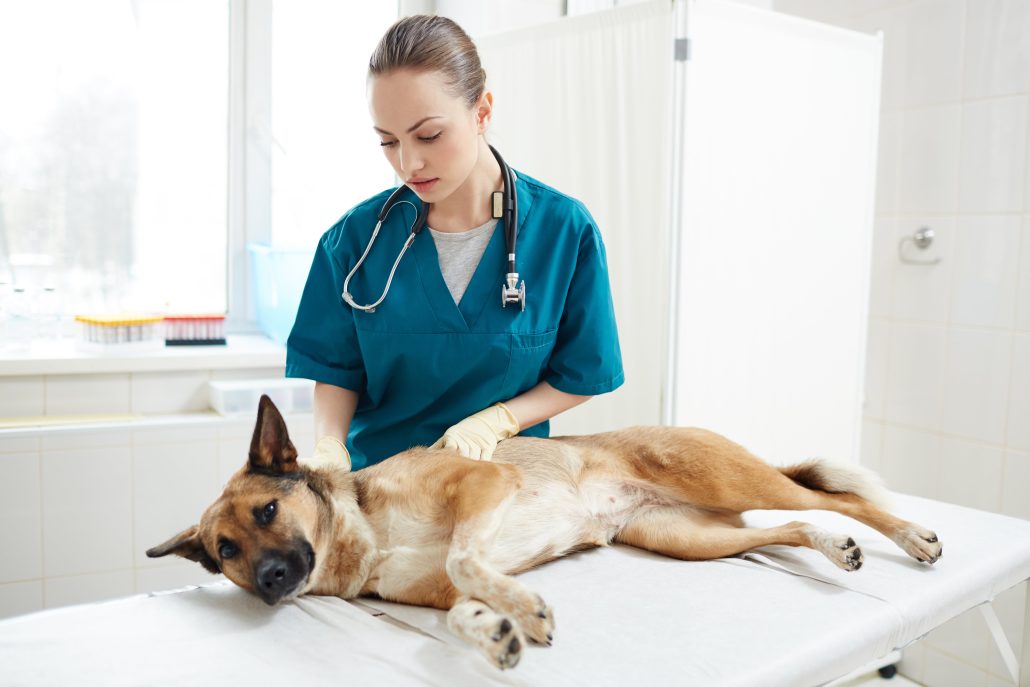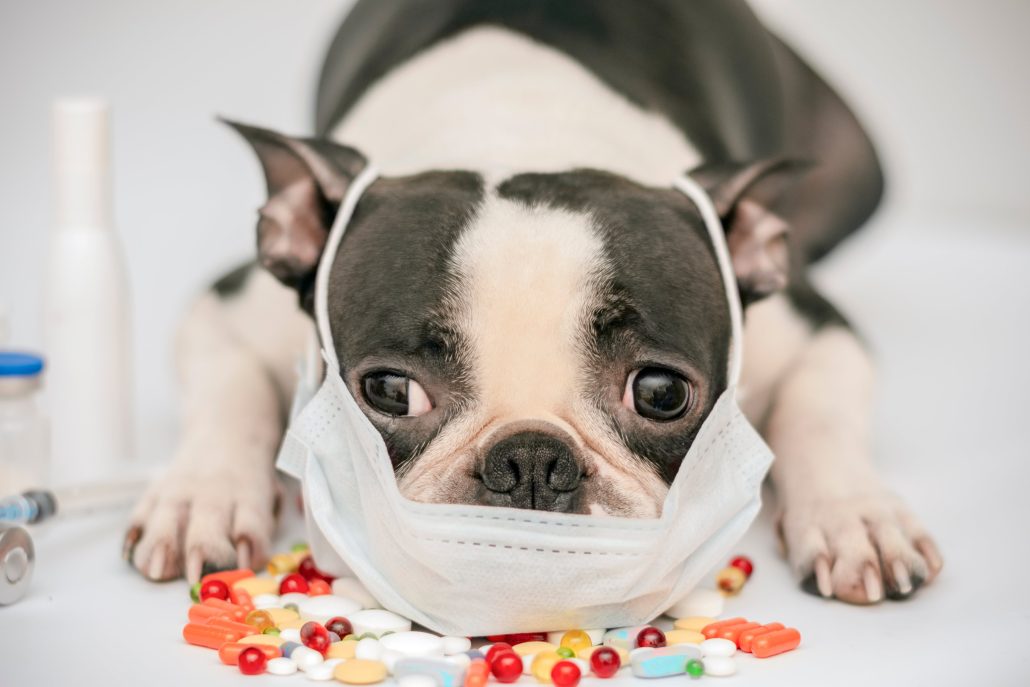
Lungworms in dogs are a type of parasitic worm that poses a serious threat to both domestic and wild dogs. The culprit behind lungworm disease is the parasitic worm known as Angiostrongylus vasorum, which targets the lungs and pulmonary arteries of your beloved pet.
It is a serious illness and if left untreated does not only cause respiratory distress but can also migrate to other vital organs, resulting in seizures and neurological symptoms.
In this post, we cover what you need to know about lungworms – From the telltale signs of lungworm infection and diagnosing lungworm infection to available treatment options and crucial preventive measures to safeguard your dog from these harmful parasites.
What Causes Lungworm in Dogs?
While there are various ways your companion can become infected with lungworm disease, the primary cause of lungworms in dogs is when they eat lungworm larvae.
Found primarily in infected slugs, snails and frogs, the parasite develops in these garden pests and then gets passed on when our dogs eat them. Here, the larvae enter the gastrointestinal (GI) tract, penetrate the intestinal wall, enter the circulation system which are them transported to the lungs, heart and blood vessels.
Not only is eating slugs and snails a concern but lungworm disease can also be caused by a dog swallowing slug slime, which may carry lungworm larvae. Another potential route of infection is through contact with or ingestion of feces from another infected animal. Mothers can also pass lungworm to their offspring through grooming and nursing.
The Signs & Symptoms of Lungworm in Dogs
Lungworm disease is a silent threat. In many cases, infection can easily go unnoticed and left untreated until it is too late. While the most surefire way to check if your dog has lungworms is to take their stool sample to your vet (or call our mobile vet van team to come to check your dog in the comfort of its surroundings), there are a number of subtle signs that may indicate a potential infection. These include:
Persistent Coughing & Respiratory Distress: Watch for persistent coughing, wheezing, or difficulty breathing.
Neurological Symptoms: Lungworms can affect the nervous system, leading to seizures, head tilt, circling behaviour, stiffness, and signs of paralysis.
Unexplained Weight Loss: Sudden and unexplained weight loss could be a subtle yet significant sign of lungworm infestation.
Lethargy and Weakness: If your dog displays unusual tiredness or weakness, it might be a symptom of an underlying health issue, including lungworm infection.
Changes in Behavior: Look out for alterations in behaviour such as loss of appetite, disorientation, lack of coordination, or a decline in activity levels.
However, symptoms of lungworms in an infected dog may vary depending on the severity of the infection. If your dog is heavily infested with lungworms, you may also observe bloody diarrhea, blood in their vomit, or even blood-tinged urine.
That’s why early detection is key to effective treatment. If you observe any of these signs, consult your veterinarian promptly. Regular check-ups and preventive measures can help protect your dog from the risks associated with lungworms, ensuring a happy and healthy life.

What is the Best Way To Treat Lungworm Infections?
Discovering that your dog has lungworms can be concerning, but the good news is that lungworm infection is treatable. Understanding the treatment options and taking preventive measures can make a significant difference in your dog’s health.
- Deworming Medication: The most common and effective treatment for combating lungworm infestation is through deworming medication. Your veterinarian will prescribe appropriate medication to eliminate the parasites. In some cases, additional medications like painkillers may be recommended to alleviate any discomfort your dog may be experiencing.
- Early Diagnosis Equals Positive Prognosis: Diagnosing and treating lungworms early on significantly improves the prognosis for infected dogs. Regular veterinary check-ups play a crucial role in early detection, ensuring prompt intervention and successful treatment.
Prevention Is Key: Preventing lungworm infection is just as important as treating it. Regular check-ups are essential, especially if your dog has a taste for consuming slugs or infected snails. Preventative medications containing praziquantel, an anti-parasitic drug effective against lungworms, are available. These treatments come in various formulations for puppies and adult dogs, including topical applications.
- Stay Proactive with Preventative Medications: Keeping your dog on preventative medications not only guards against lungworms but also protects against other parasitic infections. Consistent use of these medications is a proactive step toward ensuring your dog’s overall well-being.
- Getting Expert Assistance:
If you have concerns about lungworms or want to explore preventive measures, don’t hesitate to reach out to expert vets like the team at The House Call Vet. They have the skills, tools and expertise to ensure your companion stays healthy.

Prevent Lungworm In Your Pet Today
It goes without saying that the threat of lungworm disease in dogs is a reality that every pet owner should be aware of. However, armed with knowledge about the signs, symptoms, and treatment options, you can actively protect your furry friend!
Remember, the prognosis is positive when lungworms are diagnosed early, underscoring the importance of regular veterinary check-ups. As responsible pet owners, it’s crucial to stay vigilant, especially if your dog has a penchant for exploring areas where slugs or snails reside.
At The House Call Vet, we are not just a veterinary clinic; we are your partners in ensuring the well-being of your dog. If you have concerns about lungworms or want expert guidance on preventive measures, our mobile veterinary teams in Brisbane and surrounding areas are ready to assist.
Let’s work together to keep your canine companion happy, healthy, and free from the silent threat of lungworms! Your dog deserves the best, and we’re here to provide it. Contact us today to learn more!

